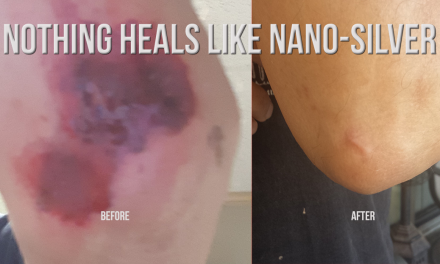Many teens think they are addicted to cell phones, and they certainly act like it. In one study, teens aged fifteen to nineteen describe themselves as addicted to their phones, and in another, 30 percent say they’re depressed when they can’t use it.
Two Latin American researchers—a psychologist who works with drug addicts and an EMF expert—in a paper published in March 2007 suggest a plausible explanation for why teens go into withdrawal when they can’t use their phones:
Cell phone use, like drugs and alcohol, may act on the reward centers of the brain which contain opiate receptors. When the brain gets its perceived reward—whether it’s heroin, chocolate, or the fun of texting two thousand times a month on average—it wants a do-over, again and again and again. Suddenly, a behavior is born.
In fact, they note, Henry Lai, Ph.D., of the University of Washington has found that microwaves increase the activity of the feel-good hormones known as endorphins and the brain’s own happy chemicals—neurotransmitters such as dopamine. Lai further ties EMFs to addiction: using a drug that quashes heroin cravings, he blocked these effects in rats exposed to RF waves.
Psychologists who have studied cell phone use, particularly texting, by teens, report that it’s leading to anxiety, behavioral problems, distraction in school, repetitive stress injury, and sleep deprivation.
If your teen is addicted, he’s not going to stop on his own. You may need to enforce the age-old rule that the one who pays the bill (at fifteen cents apiece for texts, likely no small figure) gets to decide how and how often a phone is used. Curb kidsf cell phone use. In Russia, scientists and government officials have advised that anyone under the age of eighteen should not use a cell phone. In France, there’s a ban against marketing mobile phones to young children. In the United Kingdom, Sir William Stewart, chairman of the National Radiological Protection Board, was quoted as saying, “I don’t think we can put our hands on our hearts and say mobile phones are safe.” In the United States? Not much . . . yet. In an ideal world, you would never buy your child a cell phone. But if you did that, you might never hear the end of it because all their friends now own them. Besides, in our two-career families, those cell phones equate to peace of mind. But since you’re the parent, you can set the rules for cell phone use.
First, do not buy preschoolers cell phones. It is far too dangerous a device to put into their hands—and especially for them to put up to their ears. There are studies suggesting that, in addition to brain tumors, children’s cell phone use could result in hearing loss (if they use it an hour a day or more) and the death of auditory nerve cells. One Indian study found that cell phone users who were on the phone for sixty minutes a day over four years experienced damage to the DNA in roughly 40 percent of their cells.
If you absolutely must equip your little one, look for phones without dial pads. Those will have buttons that you can program to speed dial emergency numbers only. And insist they be carried in shielded cases.
Cell phones are just as dangerous for your tweens and teens as they are for your preschoolers. But now, peer pressure really kicks in. As long as parents are paying for cell use, however, you have the power of the purse. Parents of both preteens and adolescents will need to establish clear guidelines as to their cell phone use, while understanding your kids’ needs for independence. Your children will be even safer if they obey these rules:
- Text rather than call.
- Use a safe headset.
- No phoning or texting while driving. The U.S. Department of Transportation reports that teen drivers on cell phones have slower reaction times than teens not on the phone while behind the wheel. British scientist Andrew Goldsworthy has suggested that it’s not just inattention that triggers car accidents involving cell phone use, but the false signals our nerve cells send out when they leak, as they do when exposed to EMFs. The brain hyperactivity that results may also be at the root of attention deficit hyperactivity disorder (ADHD) in children, he speculates.
- No phones in the bedroom. Many teens already have sleep problems, and a constantly beeping or buzzing phone. and friends just a text message away—won’t help. (While you’re at it, move all the electronics from sleeping areas to avoid EMF exposures when kids are most vulnerable.)
- Teach kids to keep phones away from the body while they’re turned on. Those incoming calls and texts cause a burst of RF emissions that can penetrate the body, so have them stash the phone in a purse or backpack.
As a parent, the more you can do to set a good example with your own cell phone use—making calls on a land line at home, for example—the more likely your kids are to follow suit. Don’t be afraid to ground any child’s cell phone use—by taking it away for a day or two if she ignores reasonable rules!











